SLU Researchers, Clinicians Make A Difference in the Lives of Women
Bridjes O'Neil
Communications Specialist
bridjes.oneil@slu.edu
314-282-5007
Reserved for members of the media.
Researchers and clinicians at Saint Louis University are tackling problems to improve the lives of women on many fronts.
In honor of Women’s History Month, we spotlight five SLU professors who are making a difference.
Abby Stylianou, Ph.D.
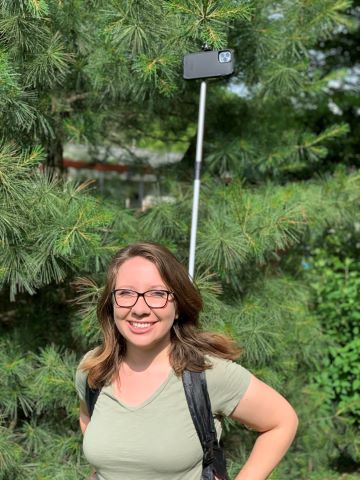
Though it is a crime that can impact anyone, the vast majority of human-trafficking victims are women and girls.
For investigators attempting to track down human traffickers and their victims, online ads can contain critical clues. The smallest of details in a room could give away its location, but there are too many ads for law enforcement to scan each of them for clues.
Abby Stylianou, Ph.D., assistant professor of computer science at SLU’s College of Arts and Sciences, led the research and development of TraffickCam, an app to help combat human trafficking.
TraffickCam collects photographs of hotels around the world that could be matched up with online ads placed by traffickers, who often use images of victims in hotel rooms. Since its launch in 2015, more than 150,000 hotels have been added to the TraffickCam database. The dataset, known as Hotels-50K, can be used to identify where trafficking victims are being held — and ultimately to rescue them, according to the paper “Hotels-50K: A Global Hotel Recognition Dataset” published Jan. 26, 2019, in arXiv, an open access archive.
The scientists have shared it with the National Center for Missing and Exploited Children, a U.S. nonprofit involved in the fight against human trafficking. Stylianou says the app has successfully aided in the rescue of victims and efforts to expand partnerships are underway in the U.K. and Canada. As restrictions lift and people begin to travel once more after the COVID-19 pandemic, Stylianou hopes to increase awareness reminding people that by simply downloading an app and uploading photos, they could play a role in saving lives.
Anne Sebert Kuhlmann, Ph.D.
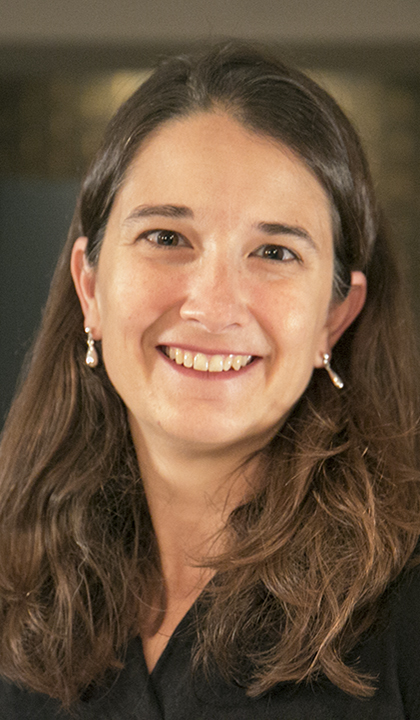
Women and girls who can't afford menstrual products often miss out on school, work, and life opportunities.
Through research and outreach, Anne Sebert Kuhlmann, Ph.D., associate professor of behavioral science and health education at SLU’s College for Public Health and Social Justice, is helping to take away this barrier. Kuhlmann led one of the first needs assessment of its kind, “Unmet Menstrual Hygiene Needs Among Low-Income Women,” published June 1, 2019, in Obstetrics & Gynecology. In the study, she argued that women's health care providers should advocate for improved access to menstrual hygiene supplies for low-income females across the U.S.
To address the needs identified by the study, Kuhlmann expanded her research to menstrual hygiene education access for pre-teens and teenagers with periods in school settings. Her most recent research, “State Standards for Menstrual Hygiene Education in U.S. Schools,” was published Feb. 3, 2022, in the Journal of School Health. Kuhlmann has spoke out about her findings and efforts to address “period poverty” in media outlets. She said more educational opportunities are needed for students on other menstruation issues, like hygiene, cramps and pain.
Kuhlmann’s research informed the launch of the St. Louis Alliance for Period Supplies, a program of the St. Louis Area Diaper Bank which helps ensure that individuals in need have access to essential period products. In partnership with St. Louis Area Diaper Bank and its SLAPS program, a group of graduate CPHSJ students launched the Interactive First Period Kit Project. The students co-authored Go With the Flow, a period booklet for first-time menstruators and their caregivers. The St. Louis Area Diaper Bank distributes the booklets through service providers and caregivers in first-period supply kits.
Denise Hooks-Anderson, M.D.
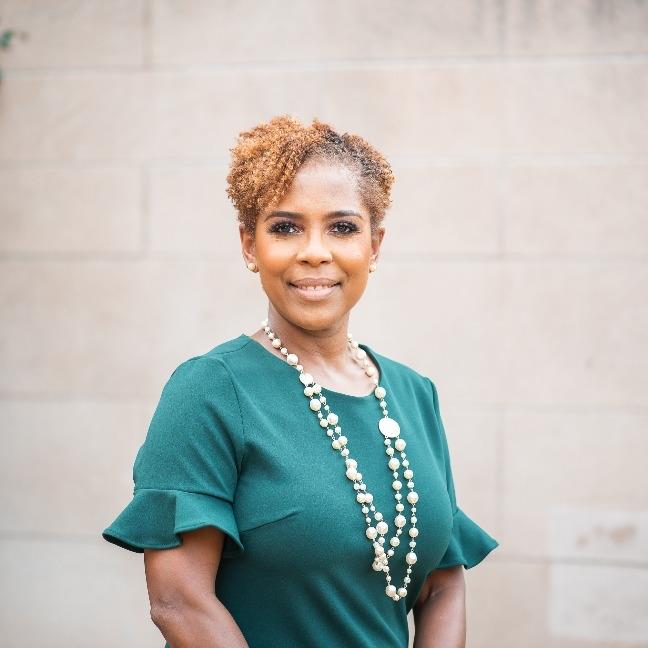
Research is showing that heart attacks are on the rise in younger women, according to the Centers for Disease Control and Prevention.
In 2019 among all ages, heart disease caused the deaths of 57,761 Black men and 54,544 Black women in the nation, according to the American Heart Association (AHA). Chronic stress affects both our mental and physical health, and clinicians and scientist believe stress may be an added risk factor for heart disease.
The COVID-19 pandemic has markedly impacted many people’s mental and physical stress levels. Denise Hooks-Anderson, M.D., interim assistant dean of diversity, equity and inclusion and associate professor in family and community medicine, said stress causes increased levels of a hormone called cortisol. This hormone elevation can increase blood pressure and heart rate. Prolonged instances of high blood pressure can cause heart and vessel damage.
Hooks-Anderson has been personally impacted by heart disease and has been educating the community on preventative measures. One way she accomplishes this task through weekly columns she writes for the St. Louis American newspaper and as an expert in other media outlets. In the column, “Why Heart Month Is Important to Me,” she shared that her father died from an apparent heart attack. He suffered from diabetes, hypertension, and he was overweight, all of which are risk factors for heart disease.
Hooks-Anderson, who also serves as St. Louis board president for the AHA, said the more efforts are made to educate individuals on the benefits of investing in future generations by demonstrating healthy habits like exercise and plant-based eating, the more results we will see. Lifestyle changes aren't just about us; it is about our future, she said.
Katherine Mathews, M.D.
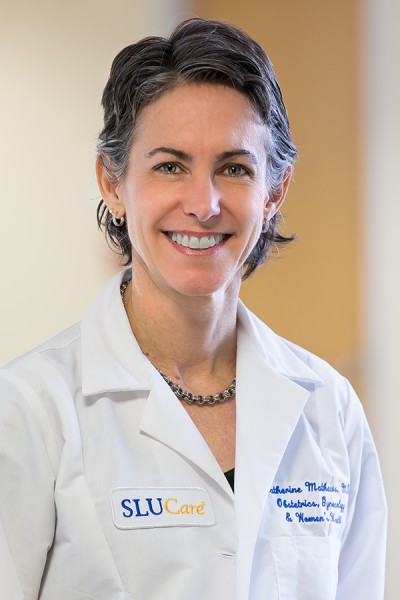
Untreated depression during pregnancy has been linked to poor pregnancy outcomes, increased risk of postpartum depression, and ongoing consequences for the infant that continue through childhood and adolescence, according to a recent study.
Like Hooks-Anderson, Katherine Mathews, M.D., professor of obstetrics, gynecology and women’s health at Saint Louis University School of Medicine, has also been educating the community on mental health.
Mathews, who works primarily with women who are uninsured or under-insured at SSM Health St. Mary’s Health Center, said OB/GYNs need to make emotional well-being and behavioral health support a routine part of practice. She co-authored the article, “Positive Depression Screening at the First Prenatal Visit in a Low-Income Primarily Black Population,” which published Feb. 1, 2022, in the Journal of Health Care for the Poor and Underserved. This study documents the prevalence of positive depression screens at the first prenatal visit in an urban, low-income, and primarily Black populations as part of initiatives to strengthen mental health services in a region with high rates of race disparities in infant and maternal mortality.
Mathews has partnered with Catherine Jamerson, administrative director of nursing operations at DePaul Hospital Behavioral Health, to improve systems of care like administering the Edinburgh Postnatal Depression Scale for routine screenings of depression and anxiety. Efforts are also made to identify women in crisis and provide them with counseling services through a partnership with Family and Community Medicine.
Denise Côté-Arsenault, Ph.D.
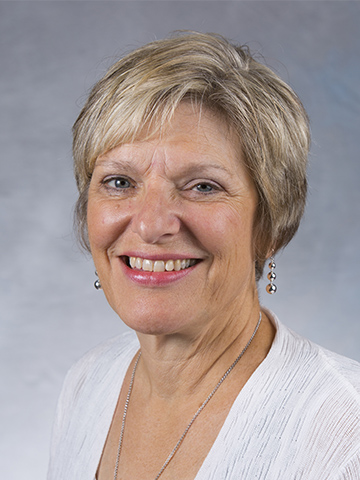
Decision making about prenatal and neonatal care can be distressing and complex for expectant parents grappling with the reality that their unborn child either won’t survive the pregnancy or will pass away shortly after birth.
Denise Côté-Arsenault, Ph.D., the Hemak Endowed professor of maternal child nursing at SLU’s Trudy Busch Valentine School of Nursing, is an internationally recognized expert in pregnancy loss working to improve care for bereaved parents facing a life-limiting fetal condition (LLFC).
In a recent study conducted by Côté-Arsenault and her colleague, Erin Denney-Koelsch, M.D., associate professor at the University of Rochester Medical Center, the researchers aimed to understand how parents make decisions about the care of their baby and to learn about parents' experiences with LLFCs.
To date, Côté-Arsenault and Denney-Koelsch have published six articles from the research project. Together Denney-Koelsch, Côté-Arsenault recently launched a pilot study funded by the Health Sciences Research Grant Program at SLU and Alicia’s Angels, a nonprofit organization dedicated to the support of families experiencing infant loss. This study will train a nurse to conduct online sessions via Zoom to support and help families process their feelings in a safe space.
About St. Louis University
Founded in 1818, Saint Louis University is one of the nation’s oldest and most prestigious Catholic institutions. Rooted in Jesuit values and its pioneering history as the first university west of the Mississippi River, SLU offers nearly 13,000 students a rigorous, transformative education of the whole person. At the core of the University’s diverse community of scholars is SLU’s service-focused mission, which challenges and prepares students to make the world a better, more just place.

















